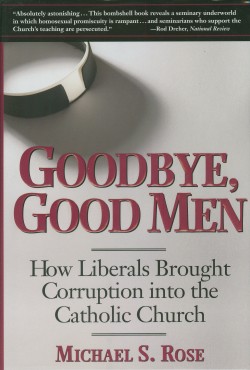Since so many of TOL's pagans and atheists (and even some who call themselves Christian) use the word "consent" to justify sexual activities (some use the phrase "between 2 consenting adults", others use the phrase "between consenting adults", while others say "between consenting people") I thought that I would share this article showing how morally confused these people are.
The limits of consent
Consent only has value when it is based on knowledge of what is truly good for us.
Oct 1, 2015
Earlier this year, an article in New York Magazine featured a story involving an eighteen-year-old woman who plans to marry and have children with her father. When the interviewer asked her to respond to those who might question her relationship, she offered the following reply:
I just don’t understand why I’m judged for being happy. We are two adults who brought each other out of dark places ... When you are 18 you know what you want. You’re an adult under the law and you’re able to consent.
Her reasoning is typical of contemporary liberal approaches to sexual morality, which are usually justified by appealing to mutual consent. So long as an activity is performed in private between consenting adults, it is argued, there can be nothing inherently objectionable about what they do. Why? Because they have given their consent, and consent is what matters most when it comes to one’s decision to engage in sexual activity.
The implications of this position are far-reaching. Many have invoked the consent principle to argue for the permissibility of polyamory and consensual incest. Once we view the morality of sex as being determined only by mutual agreement, then it becomes very hard to make any principled distinctions about the shape of sexual relationships.
When Consent Goes Wrong
There are a number of problems with this way of understanding sex. The most obvious problem with basing sexual morality on consent is that we can consent to things that are bad for us. Here we need only to think of those who deliberately cut themselves, desire the amputation of a healthy limb, or intentionally neglect their own health. These persons may have consented to engage in these activities, but their exercise of autonomy is nevertheless bad and self-destructive. So the mere fact that we may agree to do something does not show that what we are doing is morally permissible.
The defender of liberal sexual morality might respond by making a distinction between consent and informed consent. The self-harmer may choose to engage in these activities, but he does so without the full knowledge and understanding of the self-destructive effects that accompany them. If he really knew what he were about to do, then things might have turned out differently.
But this response is problematic for a number of reasons. If informed consent is just a matter of knowing the risks of one’s actions, then it is quite conceivable that someone may still freely choose to pursue self-destructive actions, having understood and accepted the risks. Yet there still seems to be something deeply wrong with a person who chooses to engage in self-destructive activities, even if he understands the risks of what he is doing...
The Purpose of Freedom Sexual liberalism’s misguided view of consent is a symptom of a deeper problem: we have forgotten what it means to be free. Our power of free choice, like the rest of our nature, has a purpose. The point of freedom is not to choose whatever we want, but to choose only those ends that are in accordance with our rational human nature. It is this exercise of freedom that gives rise to self-mastery. This classical understanding of freedom was best expressed by Samuel West, in a sermon delivered to the Massachusetts legislature in 1776:
The most perfect freedom consists in obeying the dictates of right reason, and submitting to natural law. When a man goes beyond or contrary to the law of nature and reason, he becomes the slave of base passions and vile lusts; he introduces confusion and disorder into society, and brings misery and destruction upon himself. This, therefore, cannot be called a state of freedom, but a state of the vilest slavery and the most dreadful bondage. The servants of sin and corruption are subjected to the worst kind of tyranny in the universe. Hence we conclude that where licentiousness begins, liberty ends...
We must first look to human nature and understand the goods that fulfill it. Only then can we really understand what it means to be free. Appeals to consent, autonomy, liberty, and harm all rest on moral assumptions that need to be justified. While conservatives have offered powerful defenses of their moral assumptions, this task has been ignored by defenders of liberal sexual morality.
Read more:
http://www.mercatornet.com/articles/view/the-limits-of-consent






